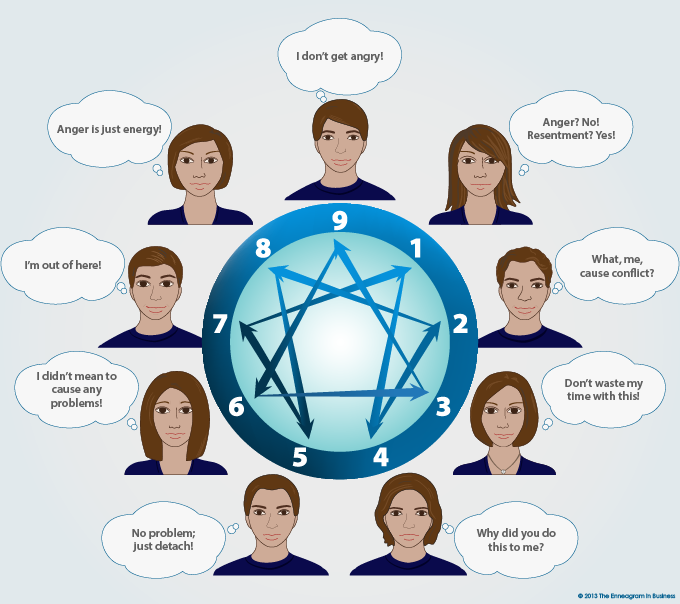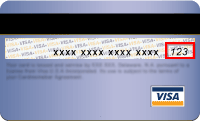How the 9 Enneagram types perceive conflict and anger

Conflict and the Enneagram
Conflict is part of life at work and at home, and it can be used in productive ways. Too much conflict creates distrust and fear. Too little conflict can create a lack of innovation because people do not dare to disagree. Conflict that goes unresolved gets swept under the rug, depletes energy, stalls forward momentum, and often appears masked as something else – for example, lack of engagement, passive aggressive behavior, and more.
The Enneagram’s conflict application allows you to approach conflict in ways that minimize stress, increase self-development, reduce reactivity, create collaboration, and enhance productivity.
Find out about the conflict strengths, challenges and development tips for each Enneagram type.
Strengths
One
Willing to assert themselves and deal with the consequences, logical and pragmatic
Two
Empathic with others’ feelings, can understand the feeling and thinking perspectives of others
Three
Take a problem-solving approach that is practical, action focused, and forward moving
Four
Can listen at length to the concerns of others as long as they are real and non-accusatory
Five
Resolve issues through logic, self-reflection, and inquiry
Six
Deep desire to get conflict resolved, handle complexity of feelings, facts and context, honest
Seven
Reframe conflict in ways that add new perspectives to the situation
Eight
Willing to go headlong into conflict when required and take the necessary time to fully resolve it
Nine
Skilled at mediating conflict between others through attentive listening and honoring all perspectives
Challenges
One
Can generate conflict through strong opinions or judgmental attitude, short-tempered and accusatory
Two
Become deeply angry and explosive when taken for granted or dismissed, deeply concerned that conflict will sever relationships
Three
Either implosive or explosive when angry at another, prefer to avoid intense conflict by diving into work
Four
Highly accusatory or withdrawn, extremely emotional when conflict involves them
Five
Withdraw and don’t express concerns, dislike engaging in intense conversations involving conflict
Six
Become highly anxious during conflict, can also create it through challenging others’ motives and actions
Seven
Avoid discussing conflicts with others, distract through jokes, change the subject, and reframe
Eight
Deep anger easily triggered, engage so intensely that others feel intimidated or overpowered
Nine
Out-of-touch with feelings of anger, anxious when others are upset with them
Development Tips
One
Be more open to alternative points of view, particularly when you disagree with someone
Two
Be less afraid of severing relationships when you or they are upset, get in touch with your distress earlier
Three
Explore your feelings more deeply and share them, don’t take someone’s being upset as a personal attack
Four
Control the internal stories you tell yourself about the impending conflict and simply talk to the person
Five
Be willing to explore your feelings in real time, explicitly ask for a time-out to explore your reactions
Six
Give yourself permission to be angry, recognize that some of your projections are true and some are not
Seven
Don’t run away from yourself or others when conflict arises, express yourself instead and listen to others
Eight
Manage your expression of anger, recognize that your anger may be masking your sadness or vulnerability
Nine
Wake up to your anger, express your wants, desires, feelings, and needs more readily


